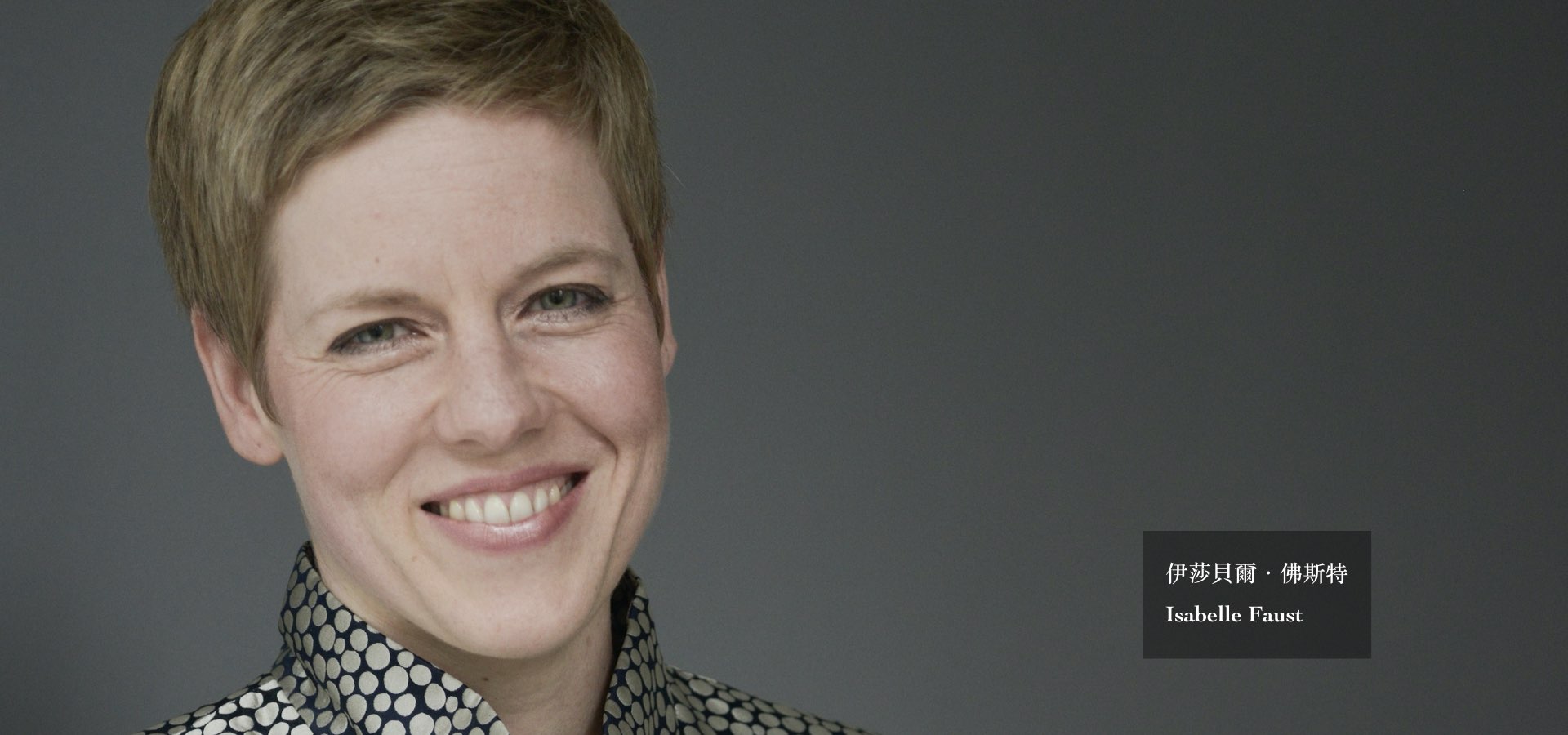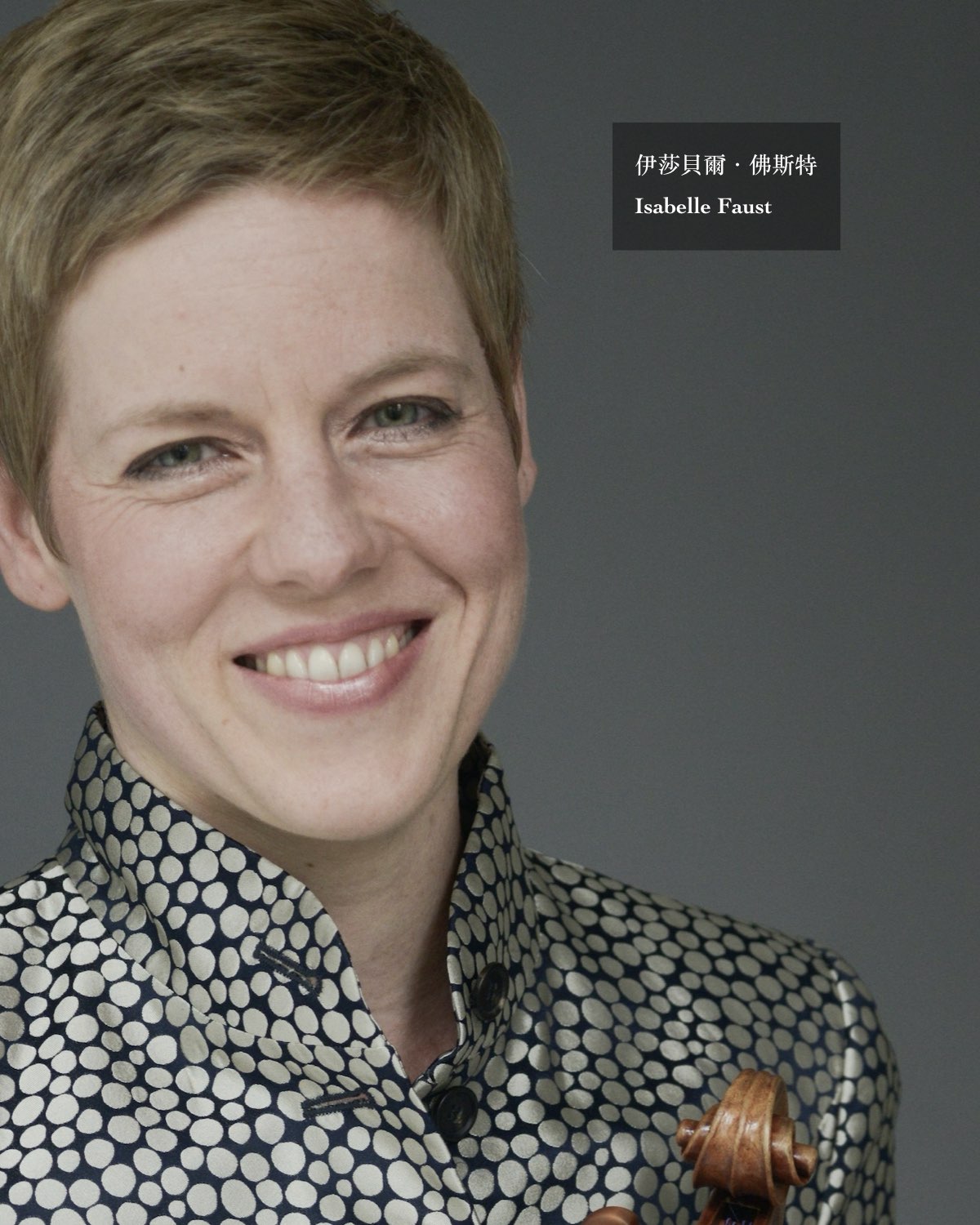

現今德國最受矚目的女小提琴家佛斯特,對於音樂詮釋所採取的觀點是,新的經驗與新的發現是身為音樂家最在意的一件事。她在 11 歲的時候就成立了一個弦樂四重奏團,豐富的室內樂經驗成為她最基本的信念:演出本身就是一種「施」與「受」的行為,「聆聽別人」這個行為本身就和「表現自己的個性」一樣重要。
佛斯特 15 歲時贏得 1987 年里奧波德・莫札特大賽的首獎,之後她開始期待自己能成為一個職業的獨奏小提琴家,不過,根深柢固的室內樂演奏思維仍然強烈地留在她的心中。她從長期身為凱魯畢尼弦樂四重奏團第一小提琴手波本(Christoph Poppen)那裡學到、並且加強了室內樂的信念。無論現在她與樂團演奏協奏曲,或是演奏奏鳴曲,她仍然持續尋求與其他音樂家在音樂想法上的對話與交流。1993 年佛斯特贏得帕格尼尼國際小提琴大賽的首獎,之後她遷居法國,她在那裡積極拓展法國曲目,尤其是佛瑞與德布西的作品。佛斯特發行的第一張專輯-巴爾托克、齊瑪諾夫斯基與楊納捷克的小提琴奏鳴曲-立刻受到國際古典樂壇的關注,並且逐漸在許多經典小提琴曲目錄音之中,展現她精練琢磨多時的成果。
2003 年,佛斯特發行她第一張與管弦樂團合作的浪漫樂派作品,德弗札克的小提琴協奏曲。她其實早在 15 歲時在曼紐因的指揮之下演奏過此曲,因此此曲對她具有重要的意義。2007 年佛斯特則發行貝多芬小提琴協奏曲的錄音,則反映出她對古樂演出的深刻理解:並非教條式的詮釋,而是把它當做一種挑戰與刺激,重新看待每一個音符的本質,以這種方式再次理解這首原本已經熟透了的曲子。對佛斯特而言,音樂對話最重要的部分,必須在演出者之間建立起共通的語言,能夠與樂團順利流暢地演出一首莫札特的協奏曲,不管這樂團是諸如柯隆合奏團這樣的編制,或者是一個大型的交響樂團,彼此溝通的原則依然沒變。
佛斯特和她長期的二重奏夥伴,鋼琴家梅尼可夫合作無間,兩人在 harmonia mundi 擁有大量的錄音,在這之中,貝多芬小提琴奏鳴曲全集的錄音獲得「德國回聲唱片」以及「留聲機雜誌年度唱片大獎」,同年還受到葛萊美獎提名。而她最近的獨奏專輯,巴赫的無伴奏組曲與奏鳴曲也得到了 2010 年「法國金叉獎年度唱片大獎」的肯定。
愈來愈多的指揮家與管弦樂團欣賞佛斯特的藝術造詣,近年來合作的對象包括阿巴多、杜特華、哈丁、霍利格、楊頌斯、柏林愛樂、慕尼黑愛樂、巴黎管弦樂團、波士頓交響、BBC 管弦樂團、馬勒室內樂團等等。這些樂團與音樂家不是只看到她在小提琴作品的主導地位,而是真正感受到她發自內心在探索音樂深度的努力。
目前佛斯特使用的是 1704 年製作的史特拉第瓦里小提琴「睡美人」(Sleeping Beauty),這把琴是巴登-符騰堡銀行出借給佛斯特的歷史名琴。
Isabelle Faust adopts a perspective on music in which ever-new experiences and discoveries are the principal focus. Having founded a string quartet when just eleven, her early chamber music experiences imbued in her a fundamental belief that performing is a process of giving and taking, in which listening is just as important as expressing yourown personality.
Victory at the 1987 Leopold Mozart Competition, when she was just 15, brought with it the prospect of a solo career. However, the guiding principles instilled in her as a chamber musician remained strong. In Christoph Poppen, the long-ime first violinist of the Cherubini Quartet, Faust found a teacher who shared and fostered these musical convictions. Whether performing sonatas or concertos, Faust constantly sought dialogue and the exchange of musical ideas. After winning the 1993 Paganini Competition, she moved to France, where she grew to love the French repertoire, particularly the music of Fauré and Debussy. Here she came to international attention with her first recording - sonatas by Bartók, Szymanowski and Janácek - and gradually refined her command of the most important works in the violin repertoire.
It is precisely this willingness to open herself up to different musical idioms that has made Isabelle Faust a highly sought-after performer of contemporary music. The list of composers whose works she has premiered extends from Olivier Messiaen to Werner Egk and Jörg Widmann. She is a fervent proponent of music by György Ligeti, Morton Feldman, Luigi Nono and Giacinto Scelsi, as well as of forgotten works, such as André Jolivet’s violin concerto. In 2009 she premiered works dedicated to her by composers Thomas Larcher and Michael Jarrell.
Faust can be heard with her duet partner, the pianist Alexander Melnikov, in searching renditions of the chamber music repertoire in recordings for harmonia mundi. For their recording of the complete Beethoven sonatas they received the “ECHO Klassik Award” and the “Gramophone Award” among others. The recording was nominated for the “Grammy”. Her latest solo recording of the Partitas and Sonatas by J. S. Bach was decorated with the “Diapason d’or de l’année 2010” among others.
These musicians and ensembles have all come to appreciate Faust’s artistry: rather than merely mastering her instrument and its repertoire, experiencing and deeply exploring music lies at the heart of her work.
Isabelle Faust performs on the 1704 “Sleeping Beauty” Stradivarius on loan to her from Germany’s L-Bank Baden-Württemberg.
頁面最後更新:2020/02/28